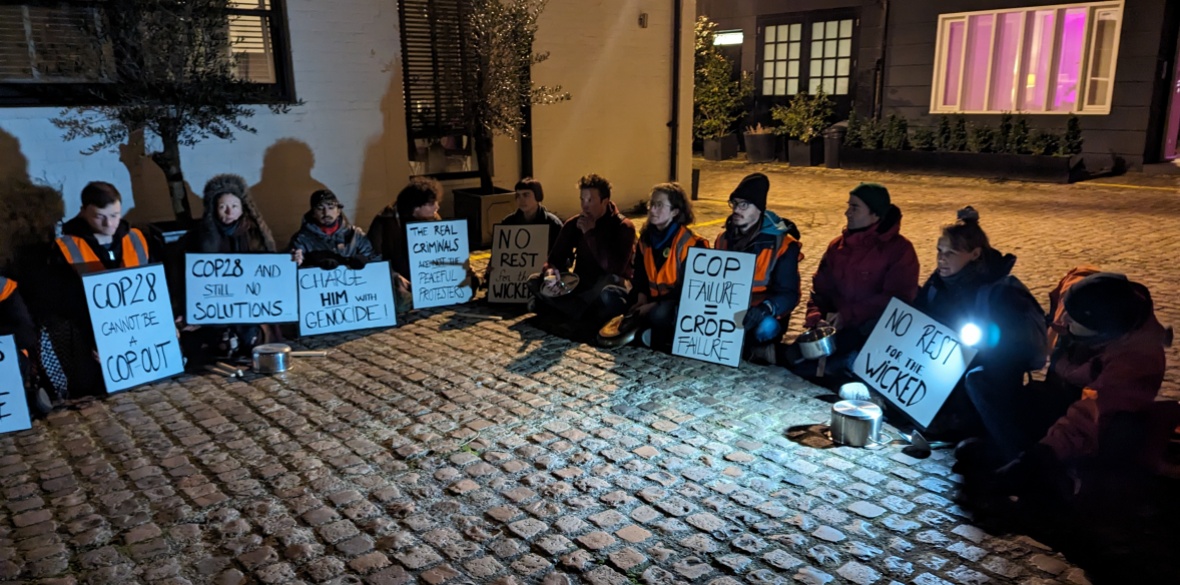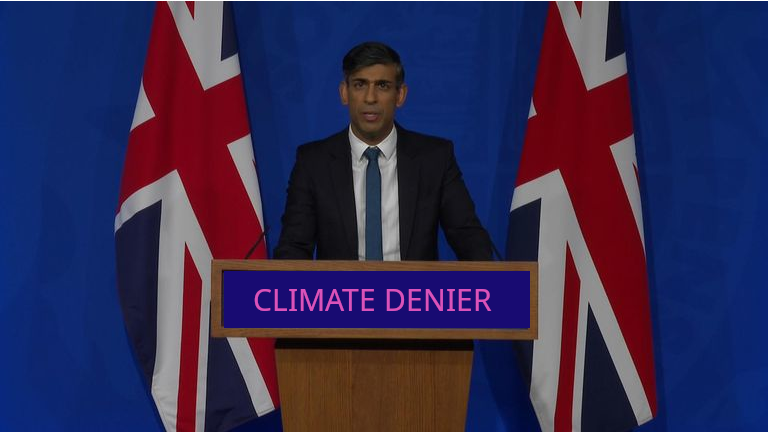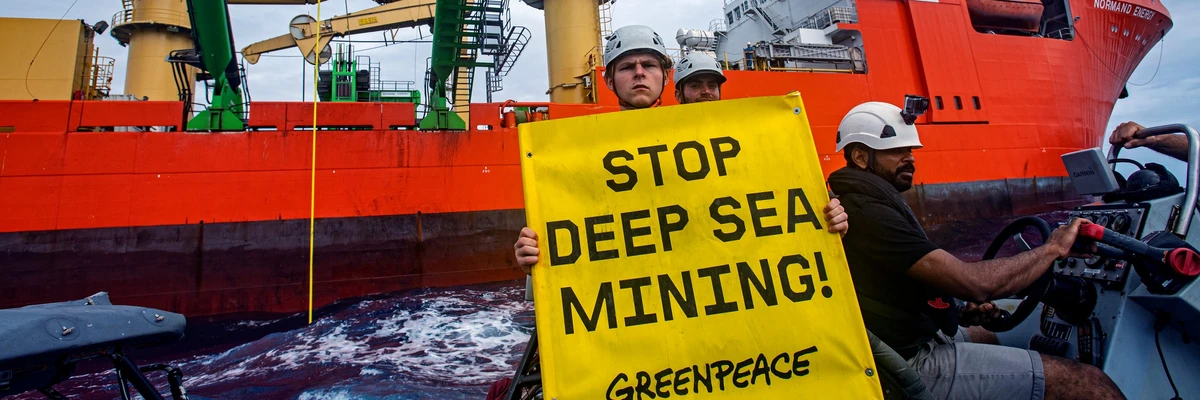COP28 Loss and Damage Fund Called ‘Drop in the Ocean’
Original article by JULIA CONLEY republished from Common Dreams under Creative Commons (CC BY-NC-ND 3.0).

The United States’ contribution of $17.5 million, in particular, was denounced as “embarrassing” for the wealthiest country in the world.
International campaigners who for years have demanded a global “loss and damage” fund to help developing countries confront the climate emergency were encouraged on Thursday as the 28th United Nations Climate Change Conference began with an agreement to make the fund operational—but said the details of the deal made clear that wealthy countries are still largely abandoning communities that have contributed the least fossil fuel emissions, only to suffer the worst climate injustices.
A recent study from the University of Delaware showed that “the unweighted percentage of global GDP lost” due to climate impacts such as long-lasting drought, catastrophic flooding, and wildfires is estimated at 1.8%, or about $1.5 trillion, and low- and middle-income countries “have experienced $2.1 trillion in produced capital losses due to climate change.”
To meet the need, developing countries have said they already require about $400 billion annually in a loss and damage fund that could help governments rebuild communities, restore crucial wildlife habitats, or relocate people who have been displaced by the climate emergency—so advocates on Thursday were left wondering why the fund agreed upon at COP28 was expected to provide only about $100 billion per year by 2030.
The shortfall threatened to ensure the loss and damage fund will remain “an empty promise,” said Fanny Petitbon, head of advocacy for Care France.
“We hope the agreement will result in rapid delivery of support for communities on the frontlines of the climate crisis,” said Petitbon. “However, it has many shortcomings. It enables historical emitters to evade their responsibility. It also fails to establish the scale of finance needed and ensure that the fund is anchored in human rights principles.”
“We urgently call on all governments who are most responsible for the climate emergency and have the capacity to contribute to announce significant pledges in the form of grants,” she added. “Historical emitters must lead the way.”
The United States, the largest historical contributor of the planet-heating emissions that scientists agree are fueling the climate crisis, has objected to tying loss and damage funding to each wealthy nation’s emissions—perhaps partially explaining why the Biden administration pledged only $17.5 million to the fund.
Such contributions are “a drop in the ocean compared to the scale of the need they are to address,” said Mohamed Adow, director of Power Shift Africa.
“In particular, the amount announced by the U.S. is embarrassing for President [Joe] Biden and [Special Presidential Climate Envoy] John Kerry,” said Adow. “It just shows how this must be just the start.”
Campaigners also objected to the agreement’s stipulation that the World Bank will host the fund for the first four years—a demand that had been made by the U.S. and other wealthy countries—with voluntary payments from powerful governments that will be “invited,” not required, to contribute.
“Although rules have been agreed regarding how the fund will operate there are no hard deadlines, no targets, and countries are not obligated to pay into it, despite the whole point being for rich, high-polluting nations to support vulnerable communities who have suffered from climate impacts,” said Adow.
“The most pressing issue now is to get money flowing into the fund and to the people that need it,” he added. “The pledged funds must not just be repackaged commitments. We need new money, in the form of grants, not loans, otherwise it will just pile more debt onto some of the poorest countries in the world, defeating the point of a fund designed to improve lives.”
The United Arab Emirates, which is hosting COP28, pledged $100 million to the fund, a sum that was matched by Germany. The United Kingdom committed to contributing 60 million British pounds, or about $75 million, while Japan pledged $10 billion. The U.S. also said it would provide $4.5 million to the Pacific Resilience Facility, which will offer loss and damage funding to Pacific Island nations, and $2.5 million for the Santiago Network, which will provide technical support to developing countries.
Izzie McIntosh, climate campaign manager at U.K.-based Global Justice Now, called the creation of the global loss and damage fund was called a “welcome, yet long overdue, step forward for our climate,” and one that “reflects the utter devastation caused by climate change in the global south, and the need for rich countries to pay what they owe for their role in it.”
Rich countries, however, “have weakened the commitment they made to climate justice by insisting on the World Bank as interim host,” added McIntosh. “This decision risks both excluding countries due to its outdated rules and deepening the debt crisis if support is provided through loans, not grants. If loss and damage funding is to be truly impactful, it must be funded and designed adequately, or risk being all talk and no action.”
At COP27 in Egypt one year ago, noted Christian Aid global advocacy lead Mariana Paoli, policymakers did not even place the loss and damage fund on the agenda.
“It’s a testament to the determination of developing country negotiators that we now already have the fund agreed and established,” she said. “It’s now vital we see the fund filled. People who have contributed the least to the climate crisis are already suffering climate losses and damages. The longer they are forced to wait for financial support to cover these costs, the greater the injustice.”
Before COP28 wraps up on December 12, Paoli added, campaigners are hoping they will “see significant new and additional pledges of money to the loss and damage fund, and not just repackaged climate finance that has already been committed.”
A fully funded, impactful loss and damage fund must be paired with a commitment by countries to end fossil fuel expansion, added Romain Ioualalen, global policy manager at Oil Change International, with rich countries “redirecting trillions in fossil industry handouts to triple renewable energy and double energy efficiency.”
“We have had enough delays,” said Ioualalen, “and this must happen now to secure a livable future.”
Original article by JULIA CONLEY republished from Common Dreams under Creative Commons (CC BY-NC-ND 3.0).



